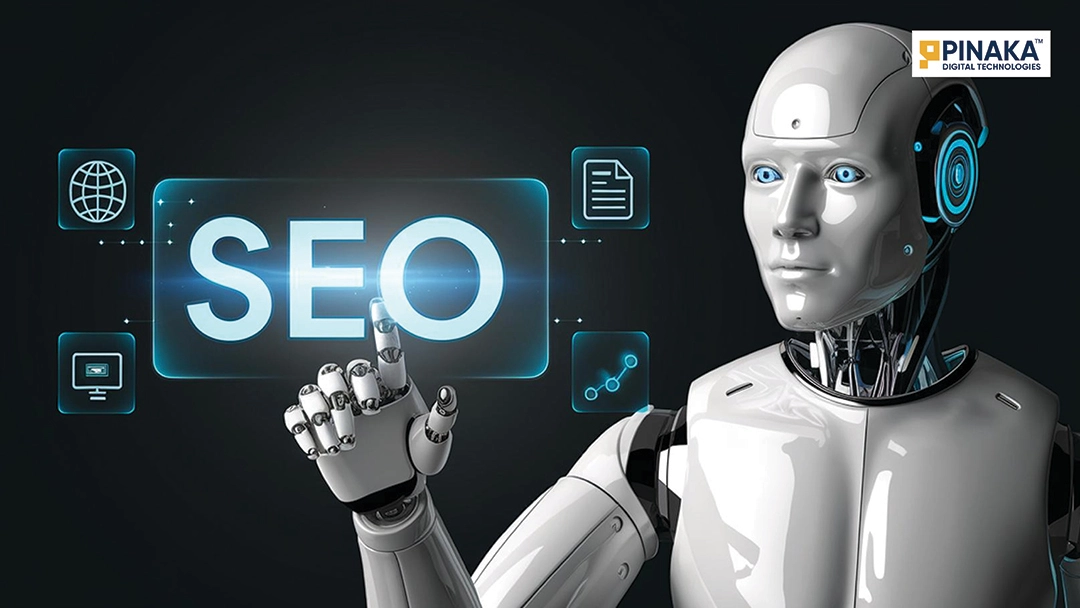Beyond the Blue Links – Traditional SEO V/S LLMs & AI SEO

There was a time when optimising for search engines felt like decoding a single, predictable formula. You would research relevant keywords, place them strategically throughout your content, ensure your website was technically sound, and hope to earn a spot on the first page of Google. But the way people search for information has evolved rapidly and dramatically.
We are now entering an era where search is no longer about ranking alone. It is about being the most useful answer, available instantly. This evolution is driven by the rise of Large Language Models (LLMs), such as ChatGPT, Gemini, and Claude, all of which are reshaping how users discover and interact with content. Traditional SEO is no longer the only player in the game. A new approach has entered the field, LLM or AI SEO.
Understanding Traditional SEO
Traditional SEO, or Search Engine Optimisation, was built to work with algorithms used by search engines like Google and Bing. The goal was simple – to help search engines understand your content well enough to deliver it to users searching for related information. Keywords, backlinks, meta descriptions, image tags, and site speed were the tools of the trade.
Imagine a user looking for the best skincare routine for oily skin. A traditionally optimised article would have that exact phrase in the title, include it in subheadings, use supporting keywords throughout the article, and ensure the page was mobile responsive and fast to load. It might also be linked from beauty blogs or forums to signal its relevance and authority.
This method worked well for years. However, it relied heavily on clicks, structured listings, and user patience. With the changing pace of technology and the appetite for immediate information, something had to shift.
The Shift Towards Instant Answers
Today, users are less likely to scroll through multiple links or read long articles. Instead, they turn to AI assistants for direct, conversational answers. If someone asks ChatGPT the same skincare question, they receive a detailed, summarised answer right away, without clicking through to a website.
This is the heart of LLM or AI SEO. Rather than focusing on page rankings, it focuses on making your content understandable and reliable enough for AI to recognise, interpret, and include in its responses. Content must now be written not only for human readers but also for AI models that summarise, paraphrase, and contextualise.
How User Behaviour Is Changing
In traditional search, your content needed to entice a user to click through. Titles and meta descriptions had to spark curiosity, and once on your site, the user journey had to be carefully crafted to keep them engaged.
With AI-led discovery, users are not necessarily clicking at all. They are asking questions and expecting immediate answers. This means your content must be ready to serve as the underlying source of those answers, even if the user never visits your page directly.
It is a change in mindset, from attracting to informing. From designing for visibility to designing for usefulness.
Writing for Machines and Humans Alike
AI models are trained on vast quantities of online content. If your website contains information that is accurate, easy to understand, and well-structured, it has a higher chance of being included in AI-generated responses.
For example, if you are writing about how to care for succulents, it is not enough to write a pretty blog post with pictures. You must include clear, factual content about watering schedules, sunlight preferences, and common mistakes. Well-labelled sections, summaries, and straightforward explanations make your content not only helpful to readers but also easily digestible by AI models.
This means writing in a way that is human but also machine-friendly. Avoiding jargon, using natural language, and being generous with context are all key elements of LLM-focused SEO.
Traditional SEO and AI SEO – Not a Choice, but a Balance
One does not replace the other. Traditional SEO continues to be valuable, especially for driving organic traffic from search engines. Page speed, mobile friendliness, domain authority, and technical optimisation still matter.
However, these need to be complemented by the principles of AI SEO. That includes writing with clarity, focusing on semantic depth, and anticipating the kind of questions users might ask an AI assistant. Rather than stuffing your page with variations of a keyword, explore a topic thoroughly, address common doubts, and add helpful summaries or FAQs.
A well-balanced content strategy today must do both, attract search engines and educate AI systems.
Getting Started with AI SEO
If you are looking to prepare your content for the future of search, here are some practices to begin with:
Start with user questions – Think about what your audience is asking and make sure your content provides those answers clearly and directly.
Cover topics in depth – Instead of creating multiple short pieces, aim for detailed, comprehensive articles that explore different angles of the subject.
Keep the language natural – AI understands human-sounding content better. Avoid robotic keyword placement and prioritise fluency.
Structure matters – Use subheadings, bullet points, and short paragraphs to make it easier for both users and AI to understand your writing.
Think like a teacher – Your role is to explain, inform, and simplify complex topics in a way that builds trust.
The Future of Search is Answer First
As we look ahead, it is clear that search will no longer be confined to a list of links on a results page. Users are seeking instant, reliable answers, and businesses must respond by creating content that can meet that expectation.
At Pinaka Digital Technologies, we are proud to be early adopters of this new frontier. By combining the fundamentals of traditional SEO with the evolving practices of LLM and AI SEO, we ensure our clients remain not only visible but also relevant in the fast-changing digital landscape.
We do not just optimise for search engines, we optimise for the future of search itself.
